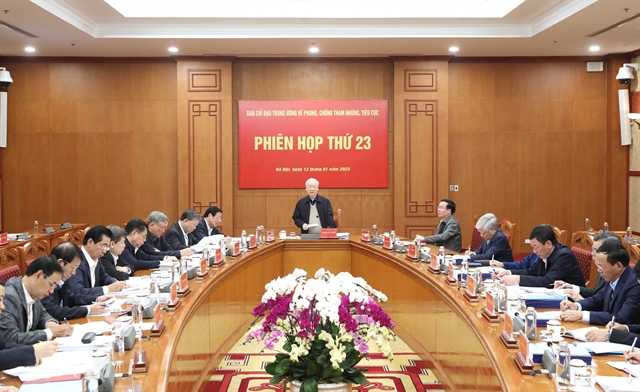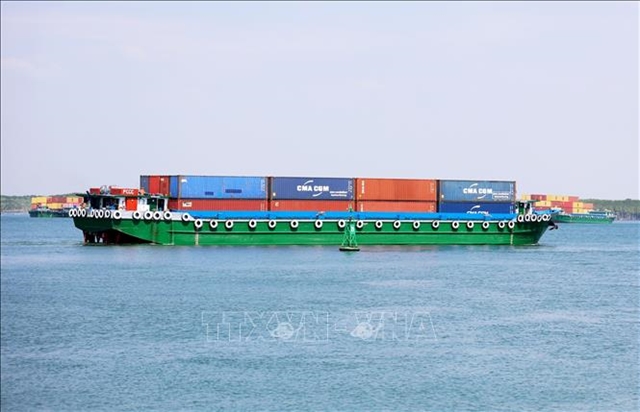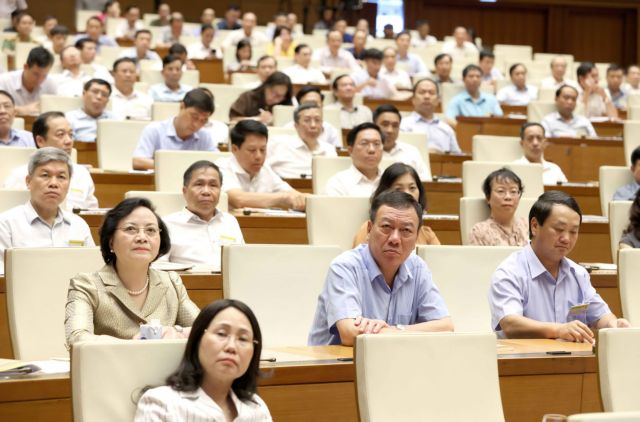 Politics & Law
Politics & Law

 |
| Party members attend the conference at Diên Hồng Hall in Hà Nội. — VNA/VNS Photo |
HÀ NỘI — More than 1.28 million Party members on Tuesday attended a nationwide conference to look at standards and ethics in government.
The meeting, both in person and as a hybrid, studied two resolutions, covering ethical standards for members.
The conference, organised by the Politburo and the Party Central Committee’s Secretariat, aimed to introduce Regulation No. 144-QĐ/TW on revolutionary ethical standards of cadres and Party members in the new period and the Politburo’s Directive No. 35-CT/TW on the Party congresses at all levels leading up to the 14th National Party Congress.
Regulation 144 has firmed up Conclusion No. 21-KL/TW of the 13th Party Central Committee on promoting the building and rectification of the Party and the political system.
According to Nguyễn Trọng Nghĩa, head of the Party Central Committee's Commission for Publicity and Education, the regulation clearly and specifically states the ethical criteria and standards that cadres and Party members need to follow.
Directive 35 is an important document which clearly orients the viewpoints, principles, goals, requirements and basic contents of the preparations for Party congresses at all levels.
In the directive, the Politburo sets out seven requirements for the preparation of Party congresses at all levels for the 2025-30 term.
The 12th Party Congress, for the first time regarded building the Party along ethical lines as important as building the Party on politics and ideology. The 13th Party Congress, once again, emphasised the necessity to pay special attention to and promote comprehensive Party building and rectification, in terms of politics, ideology, ethics, organisation and cadres.
"This is a new mindset," Nghĩa said, adding that members of the Politburo, members of the Secretariat, and the Party Central Committee had set an example with specific actions.
He said during three consecutive terms from 11th to 13th, the Party adopted strategies to fight against negative phenomena and corruption.
The authorities had discovered, prosecuted, investigated a number of particularly serious, complex corruption cases which were reported recently and in the previous years, he said.
Many high-ranking officials, leaders, and former key leaders of some localities had been prosecuted. The new point was that from the initial prosecution of economic crimes, the investigation agency had launched more intensive investigations and prosecuted corruption violations, creating new moves forward in detecting, handling, preventing and combating corruption and negativity, he said.
A public opinion survey conducted by the Commission for Publicity and Education showed over 83 per cent of officials, Party members and people agreed that leaders must hold responsibility for corruption and negativity reported in the areas they are in charge of. —VNS
 Brandinfo
Brandinfo